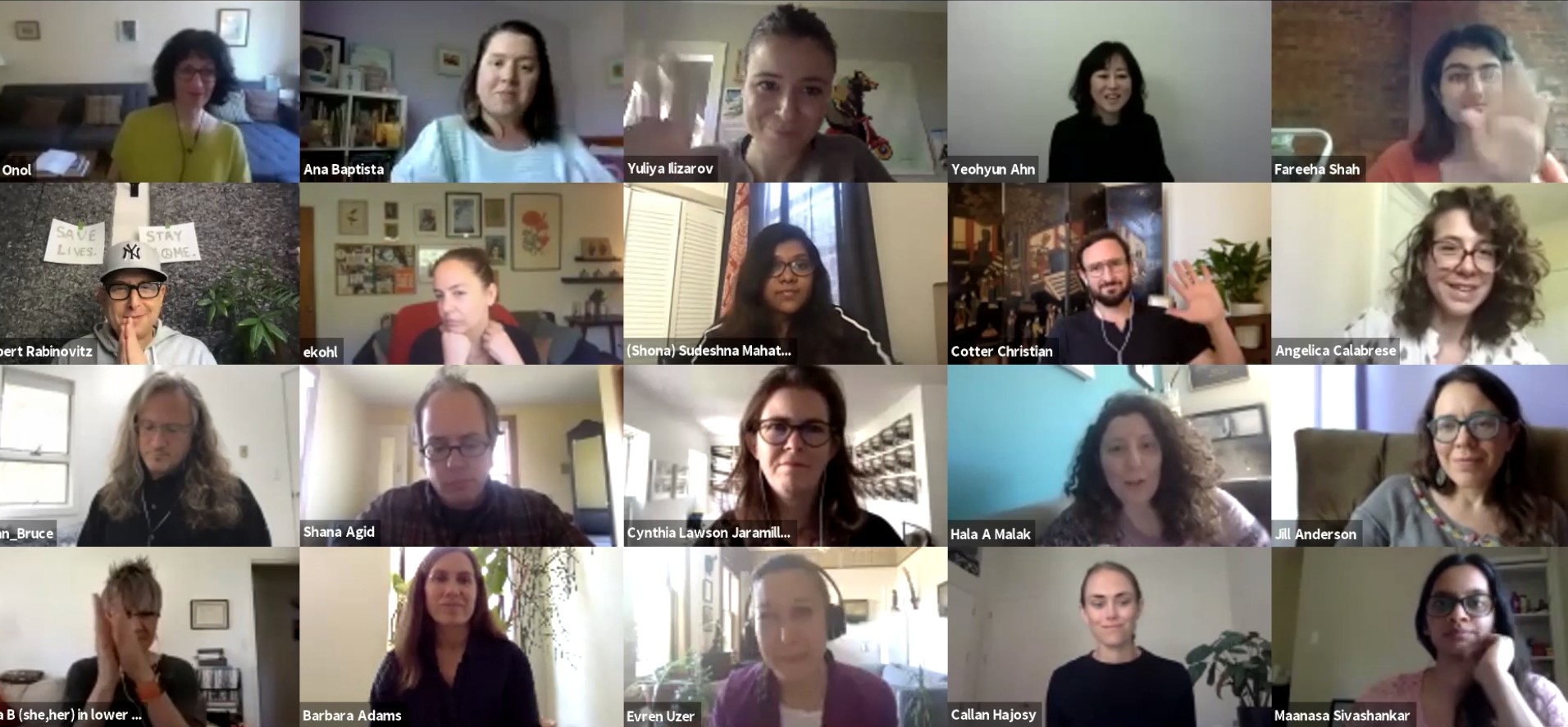Community Engagement 101 is a proposed introductory curriculum for faculty and TA/Teaching Fellow graduate students across The New School (TNS) who incorporate external engagement or partnership as a part of their syllabus. For more information, visit our Collaboratory In-Depth Profile home page here.
On May 26th, 2020, the Community Engagement 101 team hosted a Peer Exchange Session to explore community-engaged learning, developing equitable collaborations with external communities and partners, and how various decisions and priorities unfolded in their courses.
The peer exchange session included a panel of faculty who presented their syllabi from courses developed with external partnerships, followed by in-depth conversation on incorporating equitable external partnerships within higher education curricula. Faculty presenters included:
- Erica Kohl-Arenas (UC Davis): Participatory Community Engagement
*Note: Erica Kohl-Arenas’ video is not currently available. Her contribution and the discussion of her course will be available on her Faculty Presentation page soon. - Fabiola Berdiel (TNS Schools of Public Engagement) and Cynthia Lawson Jaramillo (TNS Parsons): Collaborating with Urban Communities through Design
- Shana Agid (TNS Parsons): Collab: Human Services
- Ana Baptista (TNS Schools of Public Engagement): Environmental Justice: Race, Class, and the Environment
- Alexandra Delano (TNS Schools of Public Engagement) and Jill Anderson (Otros Dreams en Acción): Transnational Border Lab: Theory, Practice, and Scholar-Activism
Presenters were prompted with the following questions:
- What do you see as the benefits of equitable and mutually beneficial community-classroom partnerships, and for whom?
- How did you set up your course and the partnership in such a way that the collaboration was mutually beneficial? How did you prepare students for this kind of engagement?
- If you taught this course more than once, what changed or evolved over time? What did you learn from these changes?
- How might we need to rethink community engagement during a pandemic and/or crisis?
This was the first of two workshops organized by the Community Engagement 101 team; a second convening will engage participants in workshopping their own syllabi for upcoming courses. The Community Engagement 101 team sees this year’s two-workshop-rhythm as a model where the spring semester concludes with a series of faculty presentations on previously-run courses, and the fall semester begins with a faculty syllabus workshop.
Key Takeaways in Community-Engaged Teaching and Learning
- Faculty need to center discussion and reflection on power, privilege, and positionality.
- Question expertise.
- Don’t make assumptions about where power and privilege live.
- Slow down, practice, and reflect.
- Create time and space in courses to reflect, process, and engage in deep inquiry, with the partner organization and among the student group.
- Create opportunities for students to practice listening and facilitation skills prior to engaging external communities.
- Leverage university resources.
- How might you use this course to redirect university resources to partner organizations and communities?
- How might you use this course to challenge higher education to open its doors and/or change its structures in order to welcome marginalized populations and/or students with precarious status?
Please see this Summary Document for more take-aways from the Peer Exchange Session and our faculty interviews.

